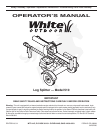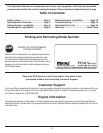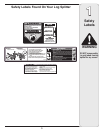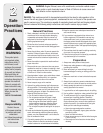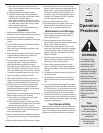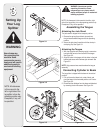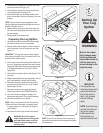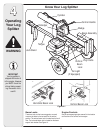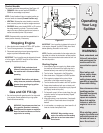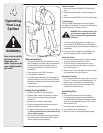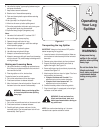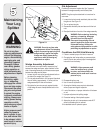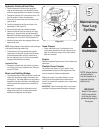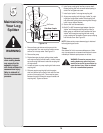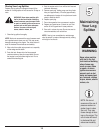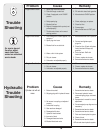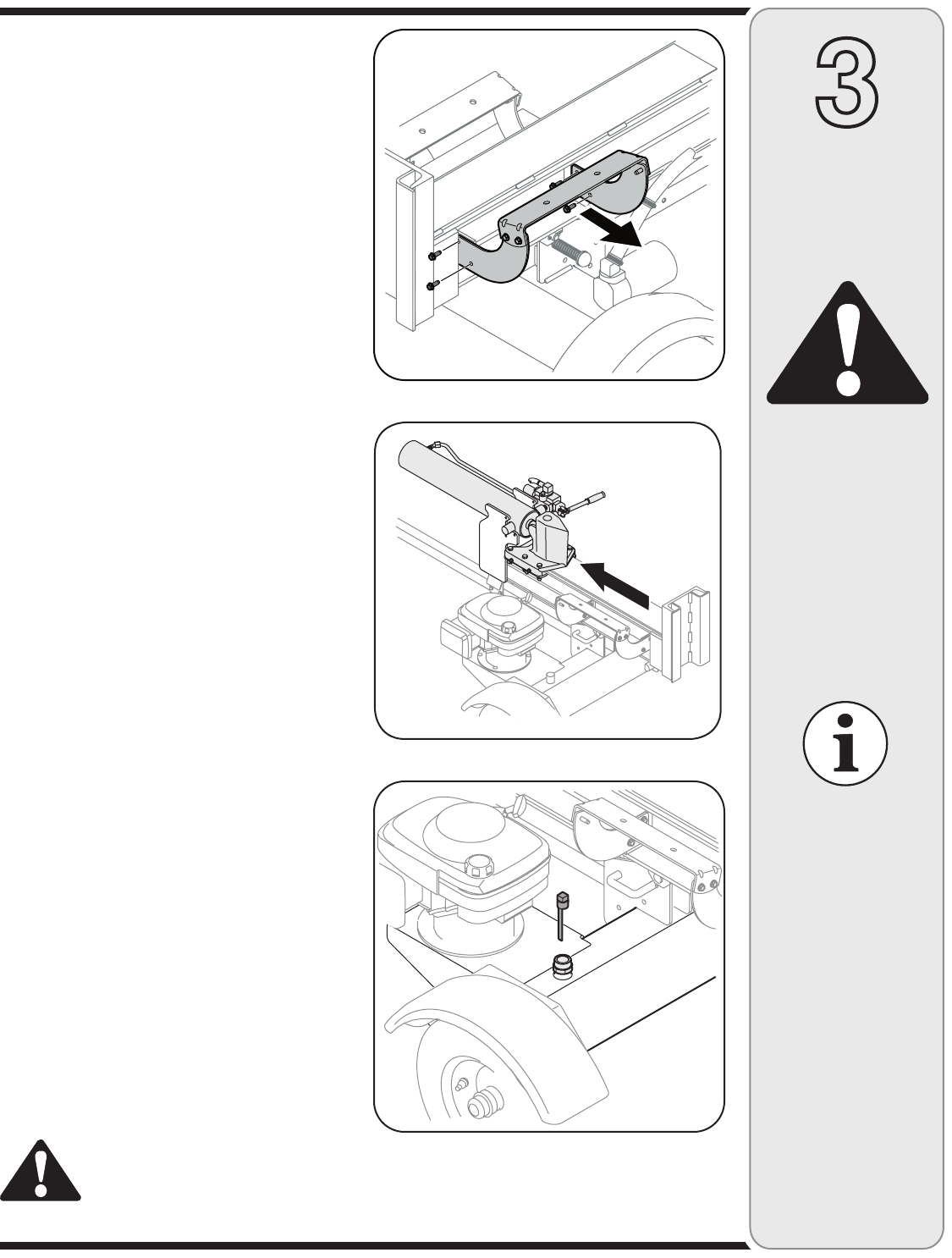
7
3. Disconnect the log cradle from the beam on the side
of the control valve. See Figure 3-5.
4. Lift and slide the cylinder up to the top of beam and
into the weld brackets. See Figure 3-6.
5. Attach the dislodger over the wedge assembly and
secure with hardware, previously removed, to the weld
brackets.
NOTE: Once the six hex screws are tightened, there
may be a slight gap between the dislodger and the weld
brackets. This gap is normal.
6. Reattach the log cradle to the side of the beam with
the control valve, aligning the ends of the cradle with
the beam flanges.
7. Roll log splitter off the bottom crate.
Preparing the Log Splitter
1. Lubricate the beam area (where the splitting wedge
will slide) with engine oil; do not use grease.
2. Remove vented reservoir dipstick, which is located in
front of the engine on top of the reservoir tank. See
Figure 3-7.
IMPORTANT: The log splitter may have been shipped
and primed with hydraulic fluid in the reservoir tank. If not,
proceed with the following steps:
3. Fill the reservoir tank with hydraulic fluid included with
this unit (if equipped) or approved fluids which include
Dexron® III / Mercon® III automatic transmission fluid,
a 10 Weight AW hydraulic oil or Pro-Mix™ AW-32
Hydraulic Oil.
4. Check fluid level using the dipstick. See Figure 3-7. Do
not overfill.
5. Replace vented dipstick securely, tightening it until the
top of the threads are flush with top of the pipe.
6. Disconnect the spark plug and prime the pump by
pulling the recoil starter as far as it will go. Repeat
approximately 10 times.
7. Reconnect the spark plug wire and start engine
following instructions in the OPERATION section.
8. Use control handle to engage the wedge to the
farthest extended position. Then retract the wedge.
9. Refill tank as specified on the dipstick.
NOTE: Failure to refill the tank will void unit’s warranty.
10. Extend and retract the wedge 12 complete cycles
to remove trapped air in the system (the system is
“self-bleeding”).
11. Refill reservoir within range marked on the dipstick.
WARNING: Much of the original
fluid has been drawn into the cylinder
and hoses. Make certain to refill the
reservoir to prevent damage to the
hydraulic pump.
3
Setting Up
Your
Log
Splitter
WARNING
Much of the original
fluid has been drawn
into the cylinder and
hoses. Make certain to
refill the reservoir to
prevent damage to the
hydraulic pump.
NOTE: Some fluid may
overflow from the vent
plug as the system
builds heat and the
fluid expands and
seeks a balanced level.
Figure 3-7
Figure 3-6
Figure 3-5
NOTE: Some fluid may overflow from the vent plug as
the system builds heat and the fluid expands and seeks
a balanced level.
IMPORTANT:
The log splitter may
have been shipped and
primed with hydraulic
fluid in the reservoir
tank. If not, proceed
with the following
steps:



